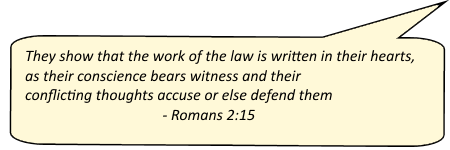What is the Problem of Evil?
The problem of evil (PoE) is a philosophical argument. It is probably the strongest argument an atheist might have to justify atheism. It is said that the existence of evil proves that God is either not all good or not all powerful (and therefore does not exist as defined by monotheistic faiths). If God wants evil to exist, [or if he is ambivalent about it and does not mind evil enough to do something about it even though he could] then he is not all that good. If he simply cannot stop evil then he is not all that powerful.
What is evil, then?
The first problem is that it is somewhat difficult to define evil without God. Many will simply use examples of things that God did in the Old Testament and claim these are examples of evil but will not define why they are evil. If evil is simply what feels right or wrong in our time then no time or culture is really evil; just different. You cannot really say Nazi's in Germany were objectively evil. Their cultural consensus was just different from our culture.
What people might take as evil is suffering or allowing suffering. Outside of our own experiences, we can see images and hear reports of people around the world suffering. People suffer horribly at the hands of each other, nature, and even God himself. There can be no doubt about this. It makes no sense to argue that God does not allow or even cause what we see as suffering.
Does this make him evil? No, not if the suffering caused has a greater purpose. For example, a doctor administers chemo-therapy which is painful and causes harm. However, the harm is designed to cause a greater good.
Free creatures are a greater good
At this point, the question is "What is the greater good in men suffering?". The fact that a person does not know the relationship between the harm and the greater good does not invalidate the possibility. A child does not understand why a doctor might be hurting him and I see no reason to expect that we understand why God does what he does. Perhaps freedom simply has more value than the complete absence of evil. Having a world where free creatures can choose good over evil is better than a world of robots void of moral choice. If you cannot choose evil than good is meaningless. Given this fact, we have every reason to believe that the world we see is the best world possible where free creatures exist to make real moral choices.
The fact is that the Problem of evil is a solved problem, one of philosophy's few clearly resolved issues.
Alvin Plantinga puts it this way:
The Promise of Good
The real conclusion to the problem of evil is confidence in the eventual eradication of evil. Men innately know that evil exists even if they have trouble defining it. Paul explains the reason for this universal concept of right and wrong:

People innately know that we were created for something different and some blame God that we do not dwell in a better state (or question his attributes). C.S. Lewis explains that the explanation for our innate expectation of something different than this world is because we were made for a different world. The apparent dilemma is actually a promise of future good.